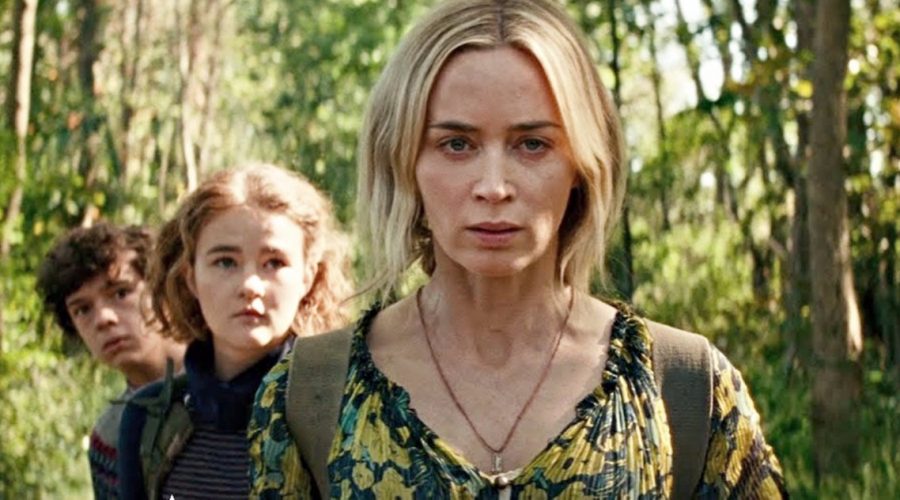A Quiet Place Part II should’ve made Emmett a Black man
When A Quiet Place Part II was released to theatres on May 28th 2021, I’d received both of my Pfizer COVID vaccinations, waited the suggested period, and been to theatres to see Spiral (previously subtitled From the Book of Saw).
On the very same Friday as the release, I purchased A Quiet Place from the Apple Store for $7.99 USD and watched it for the first time. Despite a few pacing issues, questionable choices from some of the characters, and heavy-handed foreshadowing, the first installment was a damn good movie overall.
Curiosity for the next chapter of this apocalyptic alternate reality mingled with my newly rekindled love for the theatre after being locked inside for over a year due to quarantine. Would Emily Blunt’s character Evelyn and her brave kid daughter Regan usher in a new hope for the future with guns in hand? Would the remaining Abbott family members each don one of the father’s “failed” hearing aides in their crusade, of which he left many?
The ending was so feminist and I needed to see if it would continue in that direction and blow through the glass ceiling of tired tropes in the next installment. Well, in the words of American drag queen, musician, and reality television personality Tatianna: “Choices!” Oh, and spoilers ahead.
I threw on my grungiest casual wear immediately after finishing the first installment and went to my local theatre to see A Quiet Place Part II on it’s premiere night. I braved a shockingly more robust crowd than that of Spiral’s and paid for overpriced concessions happily. What I was presented with was a cute little feature that would have been cuter if they didn’t sacrifice all of the Black folk. In fact, A Quiet Place II should’ve made Emmett–an old friend of the family–a Black man (and this is no shade to Cillian Murphy, who did a great job in the role).
The movie started with a flashback sequence to the invasion of the franchise’s signature blind and sound-sensitive space aliens. As a result, we got to see Kransinki’s role of the core family’s recently deceased father Lee reprised. This was okay! Roughly five minutes later, the first Black character—who happened to be a cop who decides to play hero—was sacrificed. This was not okay! However! I was willing to let it go since the aliens were slaughtering everyone indiscriminately. But, wait! There’s more!
Towards the end of the film, the movie sacrificed Djimon Hounsou’s character who they were too bothered to name despite him having considerable screen time (no, really. At the time of me writing this, his character is billed as ‘Man on Island’).
The meat of an otherwise decent sequel was swathed around the casual dispatching of Black bodies, which soured the experience for me quite a bit. Emmett’s story throughout was a tragedy; while the Abbott’s had suffered two great losses, Emmett lost his entire family during the Alien invasion. Proper utilization of this information for our theoretical Black version of Emmett creates natural social commentary on the concept of Two Americas.
This new Emmett’s apprehension to help the Abbotts, with some tweaking, is okay to keep as well—it creates a chance for character development. His fear and grief stricken reaction of withdrawal and paranoia make sense.
Deciding to risk himself for the greater good by helping Regan makes sense as well, but would still require some tweaking. Both Emmett and Regan need to have something logic-wise that the other doesn’t in a way that allows them to learn from one another, which will fuel their character growth. They need to feel like separate parts of a whole. Otherwise, it turns into a situation where Emmett is a Black man whose only value is risking his life for a white family and we don’t need anymore of that.
In addition to wanting to help Regan and fighting for the greater good (and without adding too much exposition), Emmett should have a personal motivator for embarking on their adventure. For example, maybe he previously allowed an unaddressed phobia to stop him from taking his partner on a cruise she/he/they desired (yes, Emmett could and should be queer as well).
By conquering this phobia partly in honor of his dearly departed, it teaches the viewer to never take anything for granted. Additionally, fighting for the greater good starts at home by fixing ourselves first. Hell, maybe even reward his trials. For example, an unexpected reunion with a beloved family member or old flame awaits his arrival to the island.
Most importantly, all of the tweaking necessary for a Black Emmett creates opportunities for more Black writers who should be hired for proper handling and representation.
Final thoughts?
As a Black man, it’s frustrating to see that our voices are silenced in A Quiet Place Part II. Even in an imaginary apocalyptic world, the only thing that seems to survive are white people and old tropes.
Ryan Kinney is a the host of Brother Ghoulish’s Tomb and a guest blog contributor. @brotherghoulish


Recent Comments